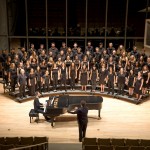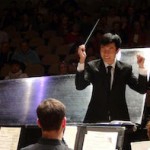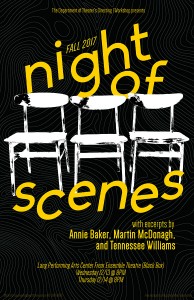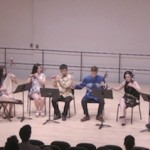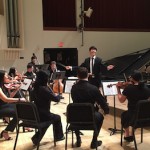We want to extend our congratulations to the new 2020 class of Lang Opportunity Scholars!!
New Class of Lang Opportunity Scholars Announced for 2020
“The Lang Scholar Class of 2020 is an extraordinary cohort who exemplifies vision, courage, and engaged scholarship,” says Lang Scholar Advisor Jennifer Magee. “Their projects span the domains of digital literacy in Egypt, human rights in Nepal, public health in Guatemala, social cohesion in New Zealand, and women’s empowerment from Jordan to Philadelphia and beyond. With the mentoring and resources available through the Lang Center, Lang Scholars gain the knowledge, connections, and skills needed to craft effective and innovative solutions to social problems.”
The Lang Scholar Class of 2020 includes:
 Nancy Awad ’20 (Chantilly, Va.). In collaboration with the Hands Along the Nile Organization, Agents of Resilience (Nancy’s intended Lang Project) will address the lack of educational opportunities that orphaned and Coptic young women have access to in rural Upper Egypt. Agents of Resilience will be a digital literacy mentoring and certificate initiative for the young women at the Lillian Trasher Orphanage in Assuit, Egypt. Participants will train one other person or their mentee, thus ensuring that the project is sustained by the local community.
Nancy Awad ’20 (Chantilly, Va.). In collaboration with the Hands Along the Nile Organization, Agents of Resilience (Nancy’s intended Lang Project) will address the lack of educational opportunities that orphaned and Coptic young women have access to in rural Upper Egypt. Agents of Resilience will be a digital literacy mentoring and certificate initiative for the young women at the Lillian Trasher Orphanage in Assuit, Egypt. Participants will train one other person or their mentee, thus ensuring that the project is sustained by the local community.
“Joining the LOS program means being a part of a supportive and socially-conscious community,” Awad says, “and finally having the structure, direction, and resources to design and implement a project that I’ve always wanted to do.”
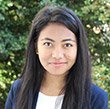 Aayushi Dangol ’20 (Kathmandu, Nepal). Aayushi’s Lang Project, नव ज्योति [Nawa Jyoti, translated to “New Light”], will be a collaboration with an NGO in Kathmandu to shift from the paradigm of rescue, repatriation, and rehabilitation of those who have been trafficked to an approach that protects and promotes trafficking victims’ human rights. A component of Nawa Jyoti will be a web-based learning platform where the trafficking victims gain vocational and life skills training. It is hoped that through this training, Nawa Jyoti will empower the trafficking survivors and put an end to the uncertainty and passivity which the victims have to encounter. Dangol’s mantra: “Passion, patience, and persistence in all I do.”
Aayushi Dangol ’20 (Kathmandu, Nepal). Aayushi’s Lang Project, नव ज्योति [Nawa Jyoti, translated to “New Light”], will be a collaboration with an NGO in Kathmandu to shift from the paradigm of rescue, repatriation, and rehabilitation of those who have been trafficked to an approach that protects and promotes trafficking victims’ human rights. A component of Nawa Jyoti will be a web-based learning platform where the trafficking victims gain vocational and life skills training. It is hoped that through this training, Nawa Jyoti will empower the trafficking survivors and put an end to the uncertainty and passivity which the victims have to encounter. Dangol’s mantra: “Passion, patience, and persistence in all I do.”
 Elizabeth Erler ‘20 (Lexington, Mass.). Zone 3 of Guatemala City contains one of the largest garbage dumps in Central America. Elizabeth’s Lang Project, Alianza de salud de zona tres [Zone 3 Health Alliance], will build upon the existing network of neighborhood presidents to bring increased access to preventative and chronic healthcare to the residents of Zone 3. This network of health advocates will work to promote awareness about and treatment of preventable but deadly illnesses such as malnutrition and diarrheal illnesses which devastate these communities and establish long-term community plans to treat chronic diseases including asthma, diabetes, and addiction.
Elizabeth Erler ‘20 (Lexington, Mass.). Zone 3 of Guatemala City contains one of the largest garbage dumps in Central America. Elizabeth’s Lang Project, Alianza de salud de zona tres [Zone 3 Health Alliance], will build upon the existing network of neighborhood presidents to bring increased access to preventative and chronic healthcare to the residents of Zone 3. This network of health advocates will work to promote awareness about and treatment of preventable but deadly illnesses such as malnutrition and diarrheal illnesses which devastate these communities and establish long-term community plans to treat chronic diseases including asthma, diabetes, and addiction.
“I am so grateful for the opportunity the LOS Program gives me to return to Guatemala City and partner with the communities in Zone 3,” Erler says. “I am excited to use experiences and lessons from Swarthmore to develop and implement a plan to increase access to healthcare in this community.”
 Layla Hazaineh ‘20 (Amman, Jordan). As a women’s rights activist, Hazaineh strives to amplify the fight against the patriarchy. She has used Facebook as a platform to disseminate videos that address taboo topics and crimes related to misogyny in Jordan and, to date, has 26,388 followers on Facebook from all over the world. With her Lang Project, Hazaineh plans to strengthen her social media platform, elevate it, and create a professional, social, and academic space which will be utilized to fight the patriarchal system, thus empowering women across the Arab world.
Layla Hazaineh ‘20 (Amman, Jordan). As a women’s rights activist, Hazaineh strives to amplify the fight against the patriarchy. She has used Facebook as a platform to disseminate videos that address taboo topics and crimes related to misogyny in Jordan and, to date, has 26,388 followers on Facebook from all over the world. With her Lang Project, Hazaineh plans to strengthen her social media platform, elevate it, and create a professional, social, and academic space which will be utilized to fight the patriarchal system, thus empowering women across the Arab world.
“The LOS Program showed me that, when believed in, ideas can grow into projects and projects can turn into a changed and positive reality,” Hazaineh says. “Considering my financial limitations, this scholarship is the opportunity I’ve been hoping for. The LOS Program not only provides support, but also faith in the Lang Scholar, and those are the keys for making change.”
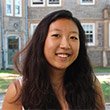 Seimi Park ’20 (Virginia Beach, Va.). Press for Peace, Park’s intended Lang Project, is an initiative dedicated to promoting the education of women in journalism, media, and communications, with a defined focus on data and technology as platform for impact. Operating in several hubs in the greater Philadelphia area, Press for Peace aims to empower women to use their voices, with the long-term goals of: increased diversity in the fields of technology, media, and telecommunications; economic empowerment through relevant skills-based workshops and training programs; and development of an independent news platform. This model will equip women with the tools to thrive in this capacity, while driving academic and cultural discourse in a time plagued by a lack of productive and constructive dialogue.
Seimi Park ’20 (Virginia Beach, Va.). Press for Peace, Park’s intended Lang Project, is an initiative dedicated to promoting the education of women in journalism, media, and communications, with a defined focus on data and technology as platform for impact. Operating in several hubs in the greater Philadelphia area, Press for Peace aims to empower women to use their voices, with the long-term goals of: increased diversity in the fields of technology, media, and telecommunications; economic empowerment through relevant skills-based workshops and training programs; and development of an independent news platform. This model will equip women with the tools to thrive in this capacity, while driving academic and cultural discourse in a time plagued by a lack of productive and constructive dialogue.
“I am honored to be joining the LOS community,” Park says. “The LOS Program is truly one of a kind. It invests in social impact, big ideas, and most of all, students. I have already experienced an incredible amount of support and encouragement through this process and cannot wait to see what the future holds.”
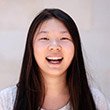 Nancy Yuan ’20 (Auckland, New Zealand) Yuan will explore how to create social cohesion in New Zealand through the integration of indigenous Maori, immigrant, and refugee populations.
Nancy Yuan ’20 (Auckland, New Zealand) Yuan will explore how to create social cohesion in New Zealand through the integration of indigenous Maori, immigrant, and refugee populations.
“Becoming a Lang Scholar means that I can access mentorship and financial resources needed to develop and implement a project to have a positive impact on my community,” Yuan says. “Through the LOS program, I hope to gain experiences which lay the groundwork for me to continue to pursue my passion for development and public policy even beyond my time at Swarthmore.”
The Eugene M. Lang Opportunity Scholarship Program each year selects up to six members of Swarthmore’s sophomore class as Lang Scholars. Selection criteria include distinguished academic and extra-curricular achievement, leadership qualities, and demonstrated commitment to civic and social responsibility. As its central feature, the program offers each scholar the opportunity and related funding to conceive, design, and carry out an opportunity project that creates a needed social resource and/or effects a significant social change or improved condition of a community in the United States or abroad. In addition, it offers each Scholar a diverse succession of undergraduate and graduate financial and other benefits. The program was conceived and endowed by Eugene M. Lang ’38.


